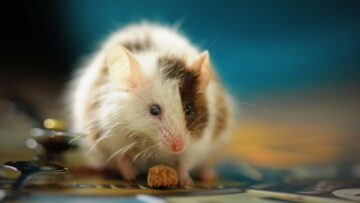Shelly Fan in Singularity Hub:
 Longevity is complicated. Multiple factors influence how fast our tissues and organs age, such as genetic typos, inflammation, epigenetic changes, and metabolic problems. But there is a throughline: Decades of work in multiple species have found that cutting calories and increasing exercise keeps multiple organ functions young as we age. Many of the benefits come from interactions between the brain and body. The brain doesn’t exist in a vat. Although protected by a very selective barrier that only lets certain molecules in, neurons react to blood components which bypass the barrier to alter their functions—for example, retaining learning and memory functions in old age.
Longevity is complicated. Multiple factors influence how fast our tissues and organs age, such as genetic typos, inflammation, epigenetic changes, and metabolic problems. But there is a throughline: Decades of work in multiple species have found that cutting calories and increasing exercise keeps multiple organ functions young as we age. Many of the benefits come from interactions between the brain and body. The brain doesn’t exist in a vat. Although protected by a very selective barrier that only lets certain molecules in, neurons react to blood components which bypass the barrier to alter their functions—for example, retaining learning and memory functions in old age.
Recent studies have increasingly pinpointed multiple communication channels between the brain and muscles, skeleton, and liver. After exercise, for example, proteins released by the body alter brain functions, boosting learning and memory in aging mice and, in some cases, elderly humans. When these communication channels break down, it triggers health problems associated with aging and limits life span and health span (the number of healthy years).
The brain-body connection works both ways. Tucked deep in the base of the brain, the hypothalamus regulates myriad hormones to modify bodily functions. With its hormonal secretions, the brain region sends directions to a wide range of organs including the liver, muscle, intestines, and fatty tissue, changing their behavior with age. Often dubbed the “control center of aging,” the hypothalamus has long been a target for longevity researchers.
More here.
